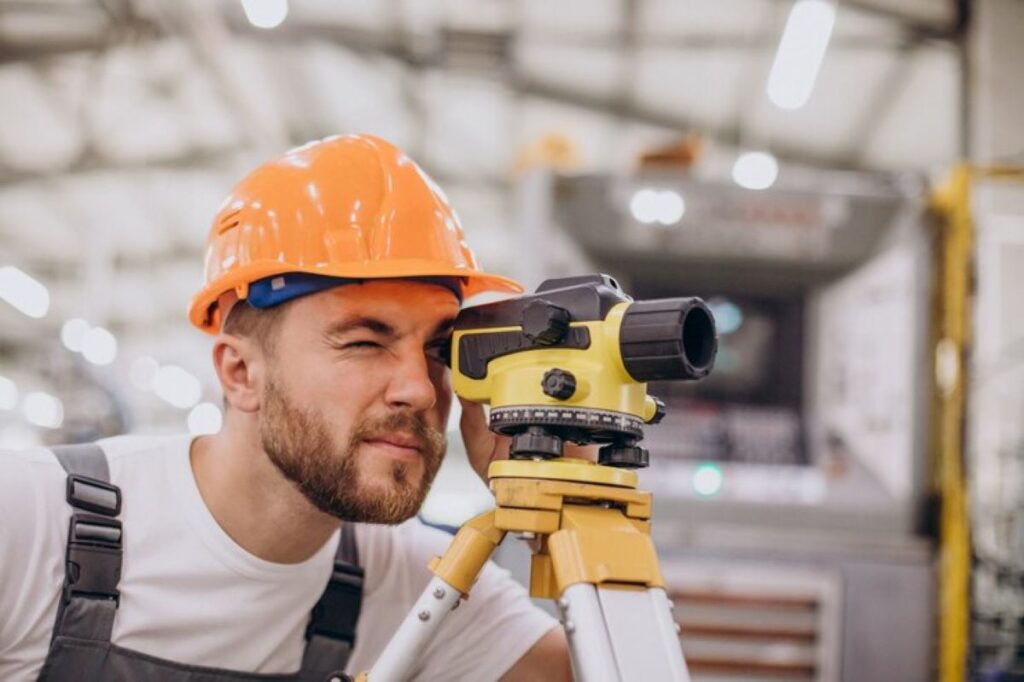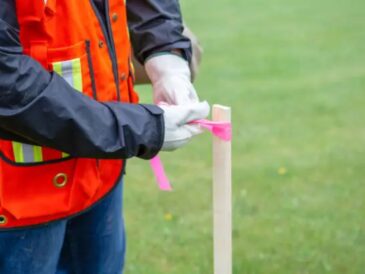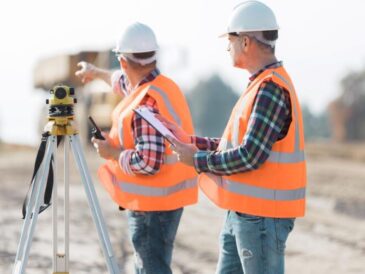Site surveyors play a crucial role in both commercial and residential construction projects. Their expertise lies in gathering and analyzing data related to the land, which is indispensable for planning and executing construction activities. By leveraging various advanced tools and technologies, site surveyors ensure that every aspect of a project adheres to legal, technical, and environmental standards. This article delves into the significant contributions of site surveyors in the construction industry, highlighting their essential functions and the impact they make on project outcomes.
The Role of Site Surveyors in Construction Projects
Site surveyors serve as the backbone of any construction venture by providing accurate measurements and critical geospatial data. Their responsibilities start well before the actual construction begins, affecting the overarching timeline and budget. They collaborate closely with architects, engineers, project managers, and clients to ensure a streamlined workflow that meets everyone’s expectations and requirements.
One of the primary tasks of site surveyors is land surveying, which involves the collection and interpretation of data regarding land characteristics, boundaries, and topography. Using specialized equipment such as total stations, GPS, and laser scanning, they measure elevation changes, natural features, and legal boundaries. This process not only helps in understanding the site’s capabilities and restrictions but also plays a pivotal role in preventing future disputes related to property lines.
Accurate Data Collection and Analysis
Accuracy is paramount in the work of site surveyors, as even slight errors in measurements can lead to significant implications down the line. A well-conducted survey sets the foundation for all future work, ensuring that everything from excavation to the construction of infrastructure aligns with the original plans. As such, site surveyors meticulously calculate angles, distances, and elevations, utilizing advanced technology to enhance precision.
The data collected by surveyors also assists in projecting costs and assessing risks associated with different types of terrain and environmental conditions. By undertaking thorough assessments, they can identify potential challenges that may arise during construction, such as soil stability issues, water drainage paths, and other environmental concerns. Understanding these risks allows project managers to plan accordingly, thereby reducing the likelihood of costly delays or modifications later in the project. Click here to get more about contour plan and why does it matter.
Regulatory Compliance and Safety
In addition to technical expertise, site surveyors are well-versed in local building codes and regulations. They verify that all plans comply with zoning laws, environmental regulations, and safety standards. This compliance is essential not only for the successful completion of the project but also for safeguarding the wellbeing of workers and the surrounding community.
Furthermore, when site surveyors identify any discrepancies or potential violations during their analysis, they can provide solutions or adjustments to enhance compliance. This proactivity minimizes the risk of legal fines and ensures that the project moves forward without unnecessary interruptions. Additionally, site surveyors often play a crucial role in liaising with governmental bodies and local authorities, ensuring that all necessary permits are obtained and that the project adheres to the stipulated guidelines. Their expertise can help navigate complex regulatory landscapes, making them invaluable assets to any construction team.
Moreover, the role of site surveyors extends beyond mere compliance and data collection; they also contribute significantly to the sustainability of construction practices. By assessing the environmental impact of proposed projects, they can recommend strategies to mitigate adverse effects, such as erosion control or habitat preservation. This not only fosters a sense of responsibility towards the environment but also aligns with the growing trend of sustainable construction, where minimizing ecological footprints is becoming increasingly important in the industry.
Impact on Project Efficiency and Cost Management
By reducing errors and ensuring compliance, site surveyors contribute significantly to the efficiency and cost-effectiveness of construction projects. A well-executed survey can save both time and money by guiding project managers in their resource allocation and timeline planning. When all site data is accurate and accessible, the need for rework and adjustments diminishes, allowing construction teams to remain on schedule. This proactive approach not only streamlines operations but also enhances the overall quality of the project, as teams can focus on executing their tasks rather than rectifying mistakes.
Additionally, site surveyors facilitate open communication among different stakeholders by providing comprehensive reports and visual representations of the surveyed areas. Such transparency improves collaboration and alignment within the project team, which can further accelerate the development process. The ability to share real-time data with architects, engineers, and contractors fosters a culture of teamwork, where everyone is on the same page regarding project goals and timelines. This collaborative environment is essential for navigating the complexities of modern construction, where multiple disciplines must work in harmony to achieve successful outcomes.

Technology and Innovation in Site Surveying
Issues of efficiency and precision have led to significant advancements in surveying technology in recent years. Modern site surveyors are equipped with state-of-the-art tools like 3D laser scanners, drones, and GIS (Geographic Information Systems). These innovations enhance traditional survey methods and enable site surveyors to gather data faster and more accurately than ever before. The integration of these technologies not only improves the quality of the data collected but also reduces the time required to complete surveys, allowing projects to move forward without unnecessary delays.
Drones, for instance, allow for aerial surveys of large plots of land, which provide extensive data without the need for extensive ground work. The ability to quickly document and visualize the layout of a site can radically transform the planning stage of a project. Similarly, 3D laser scanning offers detailed and dimensional imaging, creating realistic representations of structures that aid in design and implementation. These advanced tools also enable surveyors to conduct analyses that were previously time-consuming or even impossible, such as topographical mapping and volumetric calculations, thereby enhancing the decision-making capabilities of project managers.
The Future of Site Surveying
As technology continues to evolve, the role of site surveyors will likely expand even further. The integration of artificial intelligence and machine learning into surveying practices promises to enhance predictive capabilities, risk assessment, and decision-making processes. Moreover, the expansion of virtual and augmented reality tools could revolutionize how surveyors present data and collaborate with their teams and clients. These immersive technologies can provide stakeholders with a more intuitive understanding of the project, allowing them to visualize changes and potential challenges in a virtual environment before they become real-world issues.
Furthermore, the growing emphasis on sustainability in construction is likely to influence the future practices of site surveying. Surveyors will increasingly be tasked with assessing environmental impacts and ensuring that projects adhere to eco-friendly standards. This shift will require them to incorporate new methodologies and technologies that prioritize sustainability, such as energy-efficient design principles and materials. As the industry moves towards greener practices, the role of site surveyors will be crucial in guiding projects that not only meet regulatory requirements but also contribute positively to the environment.



